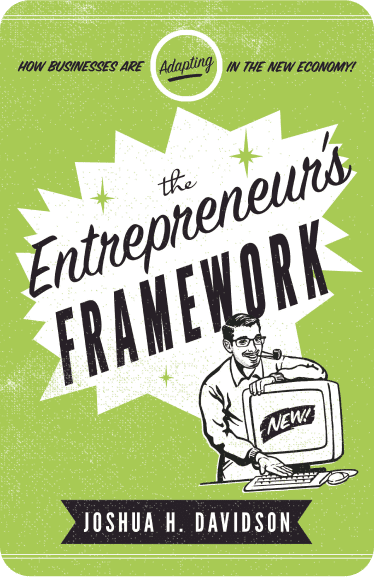Entrepreneur Adam Neumann has made headlines for the meteoric rise and fall of failed company WeWork.
He has returned with a new venture and a new high-profile investor. Many are suspicious, at best.
Let’s take a look.
Flow
This week, VC firm Andreessen Horowitz announced that it has cut its single biggest check ever. Allegedly more than $350 million will go to Neumann for his latest real estate startup, Flow.
According to Tech Crunch:
The stealthy startup is trying to reinvent real estate (again), but instead of commercial properties, which WeWork focused on, Neumann is looking into revolutionizing rental properties.
According to the New York Times, thanks to Andreessen Horowitz, Flow is already valued at over $1 billion, despite the fact that it hasn’t launched yet.
The Pushback
So far, details of the allegedly highly valued Flow are quite sparse. However, tech circles are buzzing with opinions about this and there are a range of opinions from early-stage investors
On one hand, many feel that the entire point of the venture asset class is to back bold and interesting founders, like Adam Neumann.
Others wonder exactly why Neumann gets such a huge second chance after orchestrating one of the most high-profile failures of all time.
Another point of view is that many other founders, particularly women and founders of color, rarely get even one chance in the industry. So, this is even more of a bitter pill to swallow.
Neumann’s Complicated WeWork Track Record
In the public eye, WeWork is a colorful and almost mythic failure.
It is said that the company tanked because Neumann abused investor funds for things like:
- Alcohol for the office
- His wife’s unrelated vanity project (a private school called WeGrow where tuition cost over $40,000 a year)
- A wave pool
Under his leadership, WeWork plummeted from a $47 billion valuation to $8 billion. Neumann was ousted by investors and paid over $1 billion to leave.
While spending wildly, he announced his intention to “elevate” global consciousness with his, seemingly failing, real estate startup.
What is not really ever talked about is this:
Despite all of the drama, early backers of WeWork still made money.
This is the ultimate goal of all investing. By this metric alone, regardless of everything else, WeWork was not actually a failure for early investors.
According to Rare Breed Ventures founder McKeever Conwell, whose firm backs seed and pre-seed companies:
“At the end of the day, Adam is a white guy who started a company and got a multibillion-dollar valuation. Now, was there some trickery in there? Sure. Some things he did wrong? Sure. But I think what people forget is, if you were an early investor, which we weren’t, you still got paid.”
It’s Just Business
While many people are absolutely flabbergasted and angry that Neumann is back with another venture due to his behavior in the past, things look quite different when you consider them purely from a business perspective.
The reality is that Neumann has experience building a multi-billion dollar real estate business. At the seed stage, VCs place a lot of value on the network and experience that a founder has.
Neumann has both.
According to Conwell:
“If we look at the history of entrepreneurs, of successful tech founders, many of these founders’ largest outcomes aren’t their first thing. It’s like their third, or fourth or fifth company.”
Does Andreessen Horowitz Consider Neumann A Safe Bet?
In general, there is intense anxiety surrounding the immediate future of the US economy. Many are planning for a recession, and it appears that perhaps Andreessen Horowitz is no different.
Conwell pointed out on Twitter that with Neumann’s connections and track record, he is likely considered a safer bet in terms of investment in an economic downturn.
A reminder that in times of economic downturn allocators turn back to what they deem is safer. That's right you'd get fired faster for investing in underrepresented founders than investing in Adam Neumann from WeWork fame. (And with a giant check too)https://t.co/MyQEsmMIDK
— MacTheVC.eth (@MacConwell) August 15, 2022
In this environment, it makes sense that investors would focus on what they feel more secure in investing in, even though many consider this turn of events incredibly unfair.
The Criticism
Kate Brodock, CEO of Switch and general partner at the W Fund, tweeted:
She told TechCrunch:
“This is just like somebody woke up and they were like, how many boxes can I check that just moves us backwards?”
According to Allison Byers, the founder of Scroobious, a platform that aims to diversify startups and make founders more appealing to VCs:
“This all seems new and horrendous to those who have opened their eyes to the systemic issues of VC funding over the past couple years, but we’ve been dealing with it forever.”
Outside of anger related to the lack of inclusivity in VC, many simply feel that Adam Neumann is a high-level con artist.
As such, they question the integrity of any entity that chooses to fund him.
On top of more serious critiques, many on Twitter are openly mocking both Neumann and Andreessen Horowitz:
A General Lack of Fairness In VC
A lot of this anger likely stems from how difficult it is for the vast majority of founders in the US to access capital.
In this environment, seeing Adam Neumann pull capital out of the air repeatedly for all of his ventures, despite his conduct, is a bitter pill to swallow.
90% of startups fail and the second biggest reason that startups fail is that they run out of funding. While industry news is always a buzz with how much venture capital is pouring into different types of companies, the truth is that the vast majority of companies will never receive any of the benefits of startup investing.
Every year, about 500,000 new companies are founded in the US. Out of these, venture capitalists invest in less than 1,000. This means that the vast majority of companies that try to receive funding won’t get it.
This difficulty is heightened for female entrepreneurs and entrepreneurs of color.
While billions of dollars in global venture capital funds were doled out in 2020, female founders received just 2.3 per cent of the pot, according to Crunchbase.
This year amidst economic fears, VCs are actually decreasing funding in black-owned ventures. This is likely because, in times of economic turmoil, investing in black founders is considered ‘too risky.’
It is worth noting that only one type of person is considered a ‘safe bet’ in the world of VC.
Final Thoughts on VC, Flow, and Adam Neumann
Ultimately, it remains to be seen what will happen with Flow.
While many are critical of Neumann due to his past behavior, it is also true that he built a multibillion-dollar company that benefitted early investors.
In the end, investing is all about getting returns. If someone can produce results and has an impressive network, it makes sense that VC firms would not care about their personal conduct.
However, it is understandable that many in the industry are offended.
Remember, black founders are often denied funding because their skin color ‘makes them a risk’ to VCs. These opportunities do not exist for them.
If you were denied funding because a VC spent the whole pitch meeting imagining you pregnant and couldn’t see you as a business person, it might seem inconceivable that someone with such a bizarre track record seems to get all of the capital he wants.
What do you think? Comment below.
Since 2009, we have helped create 350+ next-generation apps for startups, Fortune 500s, growing businesses, and non-profits from around the globe. Think Partner, Not Agency.
Find us on social at #MakeItApp’n®

























